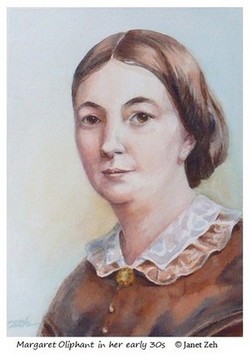A very short story that encapsulates the best of Margaret Oliphant in style, plot and observant humour, and is a good start to the Carlingford series, although not a prequel nor anything like one. Some of the major Carlingford people make a cameo appearance, but have no rôle here. The plot is slightly convoluted and leads to a conventional, if unexpected ending, the characters are well drawn, and with kindness, and the whole is delightfully enjoyable.

